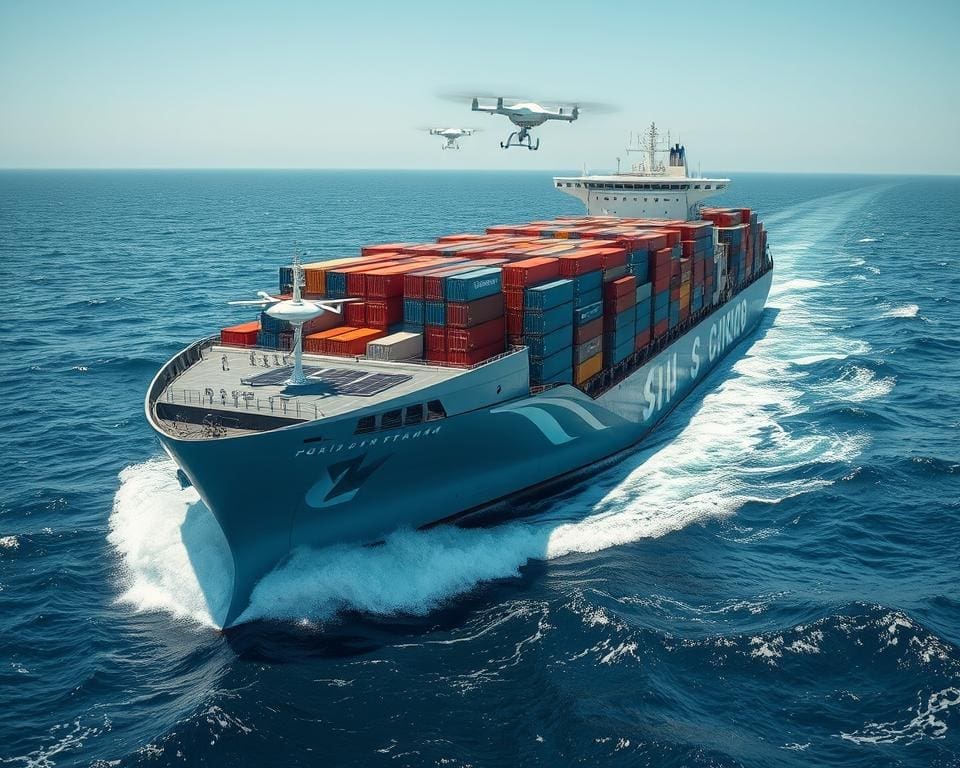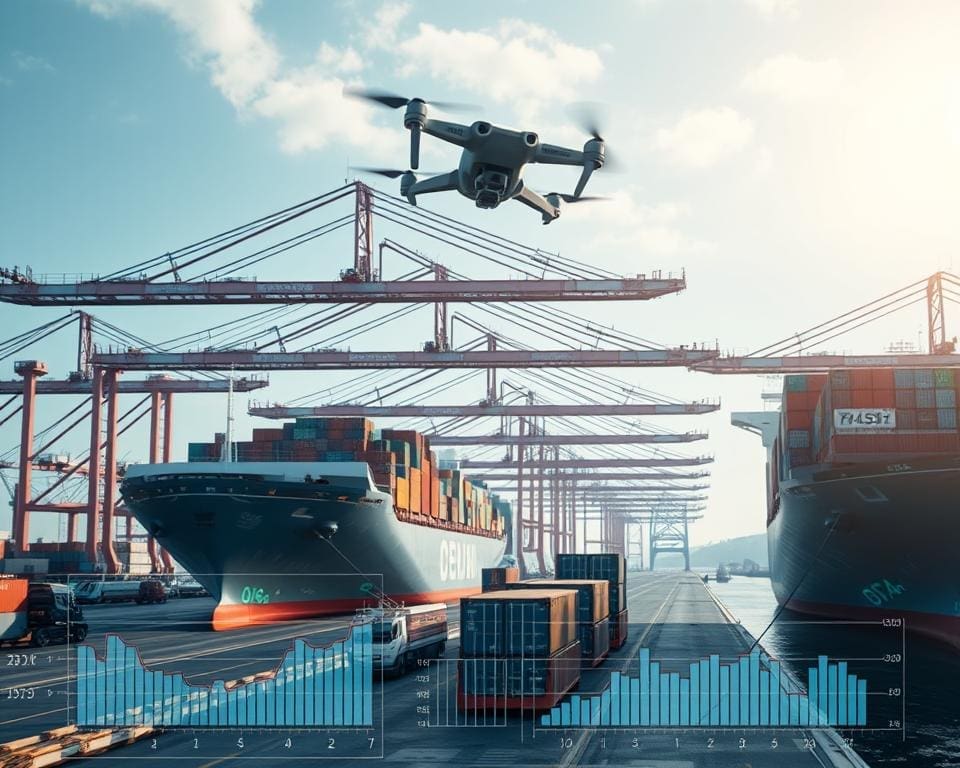In an era where the maritime industry is undergoing profound transformation, the significance of ship technology advancements cannot be overstated. As we embark on the journey of automating the global supply chain, the integration of advanced technologies is becoming central to reshaping operations within this vital sector. Digital transformation in shipping is not merely a trend; it represents a movement towards greater efficiency, cost reduction, and sustainability, forging a pathway for the future of maritime industry automation.
As we delve deeper into this discussion, we will explore how innovation is not only driving operational improvements but also redefining the global logistics landscape, resonating through every aspect of maritime functions.
Understanding Ship Technology Advancements
The evolution of ship technology advancements plays a crucial role in shaping the future of the maritime industry. The benefits derived from technological progress in shipping are manifold, impacting how vessels operate and contribute to global supply chains. Embracing innovation not only enhances efficiency but also ensures safer and more sustainable practices in maritime operations.
Significance of Technological Progress in Shipping
Technological progress in shipping has revolutionised the industry, addressing long-standing challenges while introducing new opportunities for growth. Innovations such as automated navigation systems diminish human error and significantly improve safety on board. Eco-friendly propulsion technologies are paving the way for greener shipping, reducing carbon footprints and aligning with global sustainability goals. Advanced communication tools, including satellite systems, enable seamless connectivity and real-time data exchange, crucial for efficient maritime operations.
Key Innovations Reshaping the Maritime Sector
The maritime sector is experiencing an unprecedented transformation thanks to key innovations in maritime technology. These innovations enhance operational efficiency and safety, driving the industry towards a more reliable and sustainable future. Some of the notable advancements include:
- Automated vessel tracking systems that improve navigation accuracy.
- Hybrid and electric ship designs that lessen environmental impacts.
- Smart cargo management systems that optimise loading and unloading processes.
These developments demonstrate a commitment to enhancing the shipping industry, ensuring the management of supply chains becomes increasingly reliable while fostering an environment of continuous improvement.

Ship Tech Trends: Automating the Global Supply Chain
The evolution of logistics through technology stands as a critical driver for enhancing efficiency and optimising operations within the maritime sector. As companies seek to improve their processes, AI in logistics and machine learning in shipping have emerged as pivotal tools, ensuring timely and precise decision-making.
The Role of AI and Machine Learning in Logistics
AI and machine learning are transforming how logistics are managed, enabling organisations to refine their operational strategies. By automating the global supply chain, businesses can predict customer demand, optimise shipping routes, and ultimately reduce costs. Major players like Maersk and IBM have successfully harnessed these technologies to dynamically adjust their logistics operations, showcasing exceptional results through enhanced predictive capabilities.
Real-time Data Analytics for Enhanced Decision Making
Real-time data analytics plays a vital role in facilitating informed decisions in the shipping industry. By utilising instantaneous data updates, organisations gain improved visibility into their supply chains, allowing for responsive adjustments to shifting circumstances. This analytical approach significantly streamlines operations, supporting stakeholders in making strategic choices that enhance both efficiency and productivity.
Supply Chain Automation: Revolutionising Maritime Operations
In recent years, supply chain automation has emerged as a game changer for the maritime sector, driving efficiency and precision in operations. The shift towards automation brings distinct advantages, yet it presents unique hurdles that companies must navigate. Understanding the benefits of automation in shipping alongside the challenges in maritime automation provides a comprehensive perspective on this transformative trend.
Benefits of Automating Shipping Processes
Implementing automation in shipping processes significantly enhances operational efficiency. Benefits of automation in shipping include:
- Increased speed in logistics and delivery, streamlining workflows.
- Reduction in labour costs, allowing for reallocation of resources.
- Minimisation of human error, leading to higher accuracy in tasks such as data entry and inventory management.
- Better compliance with regulations through automated reporting systems.
- Enhanced tracking capabilities, providing real-time visibility of goods in transit.
Challenges and Considerations in Implementation
Despite the clear benefits of supply chain automation, maritime businesses are confronted with various challenges in implementation. These challenges in maritime automation may include:
- High initial investment costs in technology and system upgrades.
- The necessity for comprehensive employee retraining to adapt to new technologies.
- Challenges in integrating automated systems with existing processes and software.
- Concerns over cybersecurity as reliance on automated systems increases.
Global Logistics Innovation: The Future of Shipping
The landscape of shipping is undergoing a remarkable transformation driven by global logistics innovation. This revolution is defined by the integration of advanced technologies such as blockchain in shipping and the Internet of Things (IoT) in maritime operations. These innovations not only enhance operational efficiency but also foster greater trust and transparency across supply chains.
Blockchain Technology and Transparent Supply Chains
Blockchain technology stands as a pivotal force in achieving transparent supply chains. By providing secure, tamper-proof records of transactions, blockchain fosters a new level of confidence among all stakeholders. Leading companies like IBM and Walmart have embraced this technology, utilising it for tracking shipments and ensuring that every aspect of the logistics process is documented and verifiable.
The Influence of IoT on Shipping Efficiency
The implementation of IoT in maritime operations advances shipping efficiency through real-time monitoring and tracking of cargo conditions. Sensors connected to the Internet enable proactive management of logistics processes, allowing operators to respond swiftly to changes in temperature, humidity, or other critical factors. These capabilities significantly reduce the risks associated with transporting sensitive goods, ultimately contributing to a more agile supply chain.
Maritime Technology Trends Influencing Industry Growth
The maritime industry is undergoing a profound transformation driven by various maritime technology trends. These advancements are not only redefining operational standards but are also laying the groundwork for a more efficient and agile future in shipping.
Emerging Technologies in Container Management
Container management innovation is essential as the demand for efficient shipping solutions increases. Technologies such as RFID tagging are gaining prominence, allowing precise tracking of containers throughout the supply chain. Automated stacking cranes significantly enhance the speed and efficiency of cargo handling, while digital twins help in simulating operations and optimising strategies in real-time. These improvements contribute to minimising delays and maximising throughput in ports.
Impact of Drones and Autonomous Vessels
The rise of drones in shipping marks a pivotal moment for the industry. These aerial devices facilitate rapid delivery and surveillance operations, proving invaluable in monitoring cargo and ensuring safety during transport. Additionally, autonomous vessels technology is beginning to reshape maritime logistics. Companies such as Rolls-Royce are actively piloting innovative projects that incorporate these technologies, promising to streamline shipping operations even further and reduce delivery times.
Technology in the Maritime Industry: Embracing Digital Transformation
The evolution of the technology in the maritime industry is a testament to the profound impact of digital transformation in shipping. As the sector adapts to Industry 4.0 principles, it is essential for businesses to embrace interconnectedness and seamless data exchange within shipping processes. This progressive shift not only enhances operational efficiency but also fosters a culture of innovation that positions companies for long-term success.
To remain competitive, maritime enterprises must navigate the complexities introduced by rapid technological advancements. The integration of smart technologies, such as IoT, AI, and blockchain, exemplifies the necessity for the maritime industry to evolve in response to the changing landscape. By fully embracing these digital tools, companies can create transparent and optimised supply chains that drive sustainability and profitability.
The future of shipping lies in the complete digital integration of logistics operations, paving the way for enhanced efficiencies that benefit both businesses and the environment. As organisations commit to this transformation, they are not only improving their current practices but also setting the stage for a more sustainable and innovative maritime landscape. In this journey towards excellence, the maritime industry will undoubtedly emerge stronger and more resilient.









